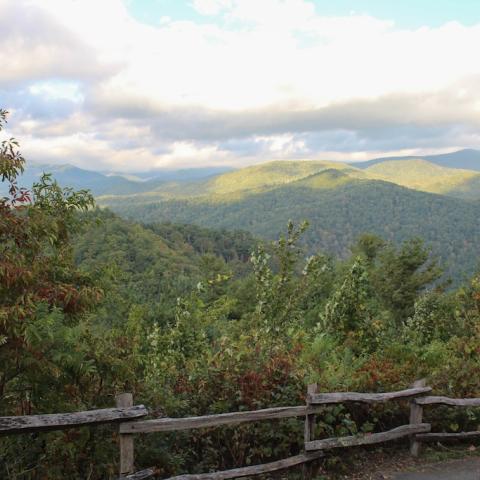
Heterodermia langdoniana, one of five new species of lichen discovered at Great Smoky Mountains National Park/Tripp and Lendemer 2018
While it has been hundreds of years since Europeans first arrived in North America, new species continue to be discovered in the landscape. Most recently, those involved with the All Taxa Biodiversity Inventory at Great Smoky Mountains National Park have reached the 1,000 plateau in terms of new species to science discovered in the park.
Over the last 20 years, many species have been documented in the park for the first time, but the number of species discovered that are completely new to science - meaning they haven’t been documented anywhere on Earth before - is truly amazing, the park said in a release.
The most recent additions come from the work of lichenologists Erin Tripp, of the University of Colorado, and James Lendemer, of the New York Botanical Garden, who have added five more new-to-science species to the tally, bringing the total up to 1,000. The past 10 years of their research, which is a part of the overall ATBI, has increased the parks knowledge of its lichen fauna by 130 percent over the original diversity estimates. The five new lichens were named to commemorate National Park Service staff who played a role in their work.
In 1998, the park and Discover Life in America formed a partnership to conduct the ATBI to discover and understand all the species that inhabit the park’s 522,000 acres, including plants, fungi, millipedes, crayfish, tardigrades (water bears), worms, insects, and many other groups. The project involves cooperating scientists from all over the United States and abroad, park staff, students, and volunteer “citizen scientists.” Overall, the ATBI has more than doubled the number of species known to the park, from about 9,300 historic species records to 19,866 species known to the park today.
ATBI research provides crucial information for park managers and leads to a better understanding of ecosystem function and how it is dependent on biodiversity. The project involves students of all ages in the process of discovery, which ultimately inspires them to be the next generation of park stewards.



 Support Essential Coverage of Essential Places
Support Essential Coverage of Essential Places







Add comment